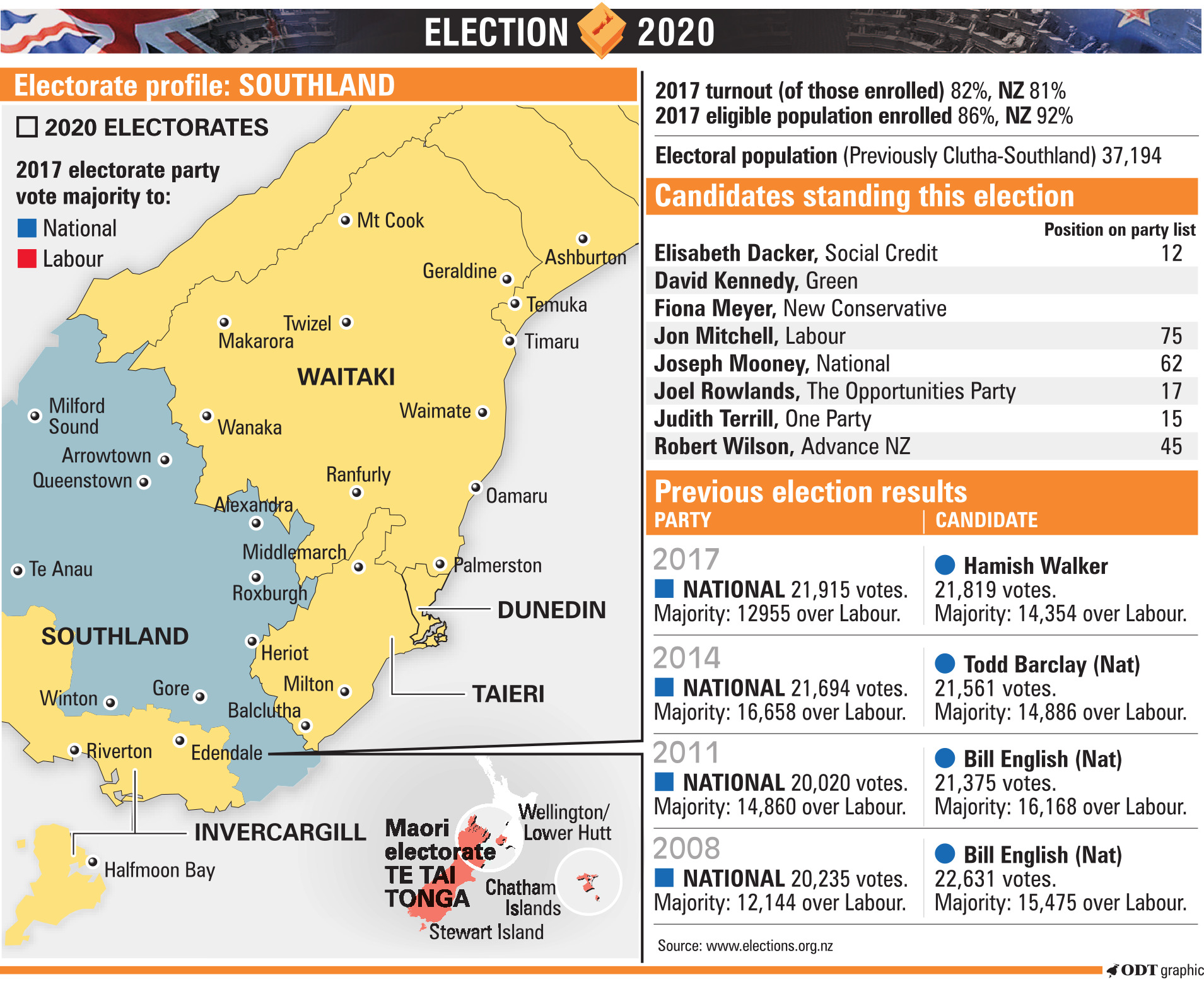
To lose one member of Parliament might be regarded as a misfortune. To lose two, however ...
Few electorates have hit the headlines as much as Southland in recent years.
The former Clutha-Southland seat, renamed following a boundary review this year, has had two members of Parliament decline to stand again after becoming embroiled in scandal in the past two terms.
First there was Todd Barclay, who left Parliament after one term when it emerged he had secretly recorded staff.
He was followed by Hamish Walker, regarded as a hard-working, if overly ambitious, young MP until he leaked the private details of Covid-19 sufferers to the media in a bungled attempt to prove he was not racist.
The scandals have been unfortunate distractions for an electorate grappling with significant economic and environmental shifts.
For tourism-reliant parts of the electorate such as Queenstown, the Covid-19 pandemic has hit hard.
Job losses have abounded, businesses have shut, and the town’s many migrant workers face uncertainty about their ability to stay in New Zealand.
Much of the electorate is rural, and the Government’s freshwater regulations have been poorly received.
An ongoing issue has been the Lumsden Maternity Centre.
A Southern District Health Board decision to downgrade the centre in 2019 was heavily criticised, as it meant northern Southland women had to travel further to give birth.
Mr Walker came to national attention as he campaigned against the decision.
However egregious his missteps were, his National candidate successor, Queenstown lawyer Joseph Mooney, will likely stroll into the seat on October 17.
Clutha-Southland had always been held by the National Party (Mr Walker had a 14,354 majority in 2017). It has never been represented by a woman.
Mr Mooney’s primary opponent may put in a stronger showing than past Labour candidates, however.
Fellow Queenstowner and emergency management expert Jon Mitchell believed he had a shot at turning Southland red.
‘‘They’re starting to ask questions about ‘should we keep voting the way we have in the past?’,’’ he said.
‘‘It’s significantly more likely there’ll be a Labour MP in this electorate after the election.’’
His Labour list ranking of 75 means he would almost certainly have to win the seat to make it into Parliament this year.
That the two main candidates both hail from Queenstown may have dismayed some rural voters who were hoping for someone with a good grasp on issues affecting farmers.
In the 2020 Boundary Review, the electorate gained the part of Central Otago around Alexandra and Roxburgh from Waitaki, and lost areas around Balclutha to the new Taieri electorate, and around Tuatapere to Invercargill.
The most prevalent industries of those employed in Southland are agriculture, forestry and fishing (16.5%), accommodation and food services (13.5%), and construction (11.1%).













